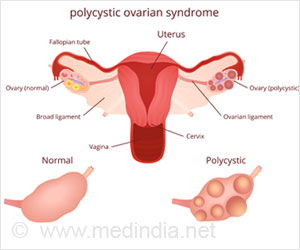Hands-on training and virtual discussions on Autism can help primary care doctors diagnose autism early and prevent the delay that is usually caused by seeking an expert far away, finds a new study

‘ ECHO Autism- Telehealth program will help reduce the wait time for young children who are at higher risk for autism, it may also help families save an average of 172.7 miles in travel trips for diagnosis’





"Stories like Katie's are why the MU Thompson Center for Autism and Neurodevelopmental Disorders is committed to improving access to care in underserved communities around the world," said Kristin Sohl, associate professor of child health and director of ECHO Autism. "To shorten wait times, we are using technology to train physicians to provide the critical initial diagnoses." The ECHO Autism team, made up of researchers from the University of Missouri, the University of Virginia and the University of New Mexico, developed and tested a new training program that expanded upon the original ECHO Autism model. In the new model, they added hands-on training and diagnostic tools to assist physicians with screenings. Additionally, ECHO Autism offers ongoing video-based coaching and mentorship.
The researchers worked with 18 primary care providers in underserved areas across Missouri to study the program's effectiveness. After attending a one and a half day in-person training, they then participated in ongoing video-based coaching every two weeks for one year. The video-based coaching connected local physicians to an interdisciplinary team of autism experts, including a pediatrician specializing in autism, a clinical psychologist, a parent of a child with autism, a social worker, a dietitian and a psychiatrist. The expert team provided brief lectures focused on best-practice guidelines for autism diagnosis and treatment.
"In the first study of the program we found notable improvements in autism screening and diagnosis," Sohl said. "All participants reported that they had changed their practice as a result of participation in the program, and they felt confident in their abilities to screen and diagnose autism early on, which is incredibly beneficial to families."
One pediatrician who participated in the new training program believes it is critically important for families and primary care physicians.
Advertisement
"I'm such a fan of this program," New said. "Thanks to ECHO Autism, my youngest is now receiving speech therapy at 21 months, as opposed to three and a half years. No parent should ever have to wait more than a year to know if their child might have autism."
Advertisement














